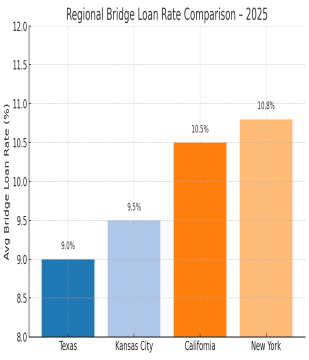The Great Debate: On-Market vs. Off-Market Properties in Commercial Real Estate

Terrydale Capital
Sep 18, 2023 11 Min read
Introduction:
In the world of commercial real estate, investors have the opportunity to acquire properties through different avenues: on-market and off-market. Each approach offers distinct advantages and disadvantages that can impact investment strategies and outcomes. In this blog, we'll delve into the differences between on-market and off-market commercial properties, highlighting their respective benefits and disadvantages for investors.
On-Market Properties:
On-market properties are actively listed and advertised through various channels, making them accessible to the public. Here are some key aspects to consider:
- Transparency and Availability: On-market properties provide investors with a wide range of options. These properties are publicly listed on real estate websites, brokerage platforms, and other marketing channels. Investors can readily access detailed information, including specifications, asking prices, financial data, and historical records. This transparency allows for comprehensive market analysis and comparison.
- Competitive Environment: With on-market properties, investors often face competition from multiple parties interested in the same property. While this can drive up prices and introduce challenges, it also presents an opportunity for investors to benchmark their offers and negotiate terms based on market dynamics. The competitive nature of on-market deals can result in fair market value assessments and a structured transaction process.
- Professional Representation: Engaging with on-market properties usually involves working with real estate agents or brokers who specialize in commercial transactions. These professionals possess market knowledge, negotiation skills, and networks that can assist investors throughout the buying or leasing process. Their expertise can provide valuable insights and guidance, especially for those new to commercial real estate.
Disadvantages:
- Limited Negotiation Leverage: In competitive bidding scenarios, investors may have limited negotiation leverage, particularly in popular markets or for highly sought-after properties. They may need to meet or exceed the asking price to secure the property, reducing the potential for favorable purchase terms.
Off-Market Properties:
Off-market properties, in contrast, are not publicly listed or advertised. These properties offer a different set of considerations:
- Exclusive Opportunities: Off-market properties provide investors with access to exclusive opportunities that aren't widely known. These deals are typically shared within a select group of individuals, such as property owners, brokers, or industry insiders. By exploring off-market options, investors may find properties with unique features, potential for value-add opportunities, or advantageous terms that are not available in the open market.
- Discreet Transactions: The off-market nature of these deals offers a higher degree of privacy and discretion. Investors can negotiate directly with property owners or a small group of interested parties, reducing the risk of intense competition. This confidentiality can be particularly valuable for investors seeking to avoid public scrutiny or seeking to secure properties swiftly and quietly.
- Potential for Favorable Terms: Given the limited exposure of off-market properties, investors may have greater negotiation leverage. Property owners may be open to more flexible terms, such as seller financing, extended due diligence periods, or favorable purchase prices. These negotiated advantages can lead to enhanced investment returns or tailored terms that align with specific investment strategies.
Disadvantages:
- Limited Market Visibility: The lack of public marketing means investors have limited access to information about off-market properties. Comprehensive market analysis may be challenging, and investors might need to rely heavily on their networks, relationships, and industry knowledge to identify and evaluate these opportunities effectively.
- Reduced Deal Flow: Off-market deals can be scarce compared to on-market options. Investors may need to invest more time and effort to find suitable off-market properties that align with their investment objectives. This reduced deal flow could slow down the investment process or limit diversification opportunities.
Common Misconceptions of On and Off-Market Properties:
- Misconception #1: On-market properties are overpriced. While it's true that on-market properties may attract more competition and potentially higher prices due to their visibility, it's a misconception to assume that all on-market properties are overpriced. The market dictates the value of a property, and competitive bidding can drive prices up, but it doesn't necessarily mean they are inflated. Thorough due diligence and analysis are crucial to determining whether an on-market property aligns with its market value and investment objectives.
- Misconception #2: Off-market properties are distressed or undesirable. There is a common misconception that off-market properties are only available because they are distressed or undesirable. While off-market properties can include distressed assets, they also encompass properties with unique circumstances, such as owners seeking a discreet transaction, family transfers, or exclusive opportunities shared within private networks. Off-market properties can range from prime assets with value-add potential to properties that simply haven't been publicly listed.
- Misconception #3: Off-market deals guarantee better terms. While off-market deals can offer negotiation advantages and potentially more favorable terms, it's not a guarantee. Each off-market transaction is unique, and the terms are still subject to negotiations between the parties involved. The assumption that off-market deals always result in better terms can overlook the importance of thorough analysis, proper due diligence, and skillful negotiation to ensure a favorable outcome.
- Misconception #4: On-market properties lack exclusivity and unique opportunities. Some investors might believe that on-market properties lack exclusivity and unique opportunities compared to off-market properties. However, this is not always the case. On-market properties can still offer attractive investment prospects, especially if they are well-positioned, have strong fundamentals, or are located in high-demand markets. Additionally, on-market properties provide a broader pool of options and the ability to benchmark against other available listings, which can lead to discovering hidden gems.
- Misconception #5: Off-market deals require extensive personal networks. While having a robust network can certainly help in accessing off-market deals, it is a misconception that personal connections are the only way to find such opportunities. Real estate brokers, consultants, industry associations, and online platforms specializing in off-market transactions can also provide avenues to discover and explore these deals. Expanding one's network and actively engaging in the commercial real estate community can increase the chances of accessing off-market opportunities.
Conclusion:
Both on-market and off-market commercial properties offer unique benefits and disadvantages for investors. On-market properties provide transparency, a competitive environment, and professional representation, while off-market properties offer exclusive opportunities, discreet transactions, and potential negotiation advantages. Investors should carefully consider their investment goals, market dynamics, and risk tolerance when deciding which approach to pursue. A diversified strategy that encompasses both on-market and off-market opportunities may provide a well-rounded investment portfolio and unlock new avenues for success in commercial real estate.
With Terrydale Live, you have the opportunity to browse active opportunities both on and off-market as well as view live quotes at the touch of a button. Sign up for free here!
Partner With Terrydale Capital for Your Debt Financing Needs
When it comes to debt financing, understanding the right timing, process, and options is crucial. At Terrydale Capital, we provide a comprehensive range of commercial loan solutions tailored to meet your business's unique needs.
































































































































































































































































































































































